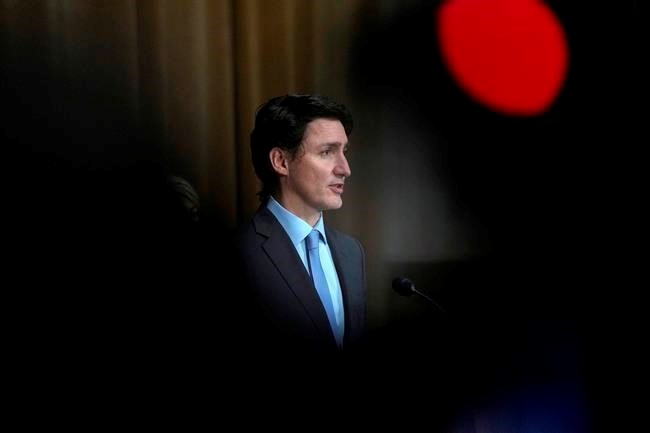OTTAWA — Canada and its allies have upped their sanctions on Russia as that country becomes increasingly aggressive against neighbouring Ukraine. Here is a rundown of the measures that have been put in place, and other actions Canada is taking.
Sanctions
— Economic sanctions targeting members of the Russian State Duma who voted to recognize of the independence of Donetsk and Luhansk, two separatist regions of Ukraine that have suffered eight years of war fuelled by Russian weapons and troops. The vote in the Duma, made up of 450 members, was unanimous.
— A ban on Canadians from engaging in transactions and activities in the non-government controlled areas of Donetsk and Luhansk.
— A prohibition on anyone dealing directly or indirectly in Russia's sovereign debt in a bid to prevent that country from raising debt to cover spending costs.
— Measures prior to this week's actions had already targeted more than 440 individuals and entities, and have aligned with similar measures taken by allies such as the European Union and Britain. The sanctions freeze assets and prohibit the conduct of financial transactions with any entity on the list. They also impose a ban on travel to Canada to any individual on the list.
Military
— Canada will send up to 460 additional troops to join the approximately 800 already deployed in Europe as part of NATO.
— On the ground, Canada will send a battery of artillery guns and an electronic warfare group. The battle group in Latvia already contains up to 540 Canadian personnel, vehicles and equipment.
— In the air, the military will send a CP-140 Aurora long-range patrol aircraft to serve under NATO command. On the water, a second frigate with a maritime helicopter will join NATO's Standing Naval Forces.
— About 3,400 Canadian Armed Forces personnel have also been authorized to deploy to Europe should NATO require the assistance.
— The federal government has offered up to $10 million in weapons and equipment to Ukraine. Included in that is $7.8 million worth of lethal weapons and ammunition.
Other actions
— Canada has provided Ukraine up to $620 million in loans to help the country counter Russian efforts to destabilize the Ukrainian economy.
— At the start of February, Global Affairs Canada advised Canadians to avoid all travel to Ukraine. More recently, Foreign Affairs Minister Mélanie Joly has urged any Canadians in Ukraine to leave immediately.
— The federal government has also closed its embassy in the Ukrainian capital of Kyiv.
This report by The Canadian Press was first published Feb. 23, 2022.
The Canadian Press




